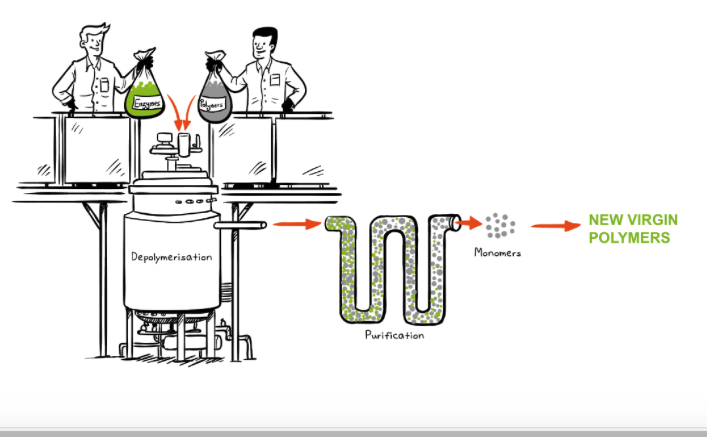
Carbios SAS publishes PET recycling technology
For years, French Carbios SAS has worked to set up a process that effectively depolymerizes PET, one of the most common plastics. Now its process has been published.
Polyethylenterephtalat (PET) waste makes one fifth of the 359 million tons of mostly non-degradable plastics produced annually. Once used, the polymer used to make plastic bottles, films or packaging resists for over 1,000 years in the environment. So it would be a good ideas to use PET waste to make new PET products. According to a Nature publication, French biotech Carbios SAS aseemingly has solved the problem. Attempts to recycle PET have resulted in downcycling so far, as mechanical properties are lost during the physico-machanical approaches applied today. Using an optimised bacterial hydrolase/depolymerase, the company reports over 90% of PET recovery by a process that lasts only 10 hours and is to be scaled up for PET production from PET waste by 2021.
The company’s engineered PET-depolymerase has been co-developed with biotechnologists form the renowned Toulouse Biotechnology Institute (TBI). Prof. Alain Marty, Carbios’ Chief Scientific Officer commented: The results obtained confirm the industrial and commercial potential of the company’s proprietary process, which will be tested in 2021 in our demonstration plant in the heart of the French Chemical Valley, near Lyon.
Thanks to the innovative technology developed by Carbios, the PET industry could become truly circular. In the publication, the French researchers demonstrate that biologically recycled PET exhibits the same properties as petrochemical PET and can be produced from enzymatically depolymerized PET waste, thereby contributing towards the concept of a circular PET economy.


 Getty Images for Unsplash+
Getty Images for Unsplash+ Immunic/Nela Dorner
Immunic/Nela Dorner